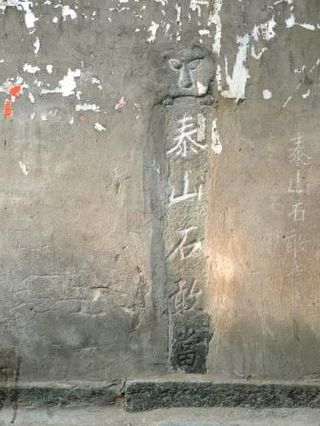Superstitions play a huge role in moulding many Taiwanese peoples’ lifestyles, especially during festivities as many superstitions stem from ancient folklore that have been told through generations.
Lunar New Year
Lunar New Year, also known as Chinese New Year, celebrates the beginning of a new year according to the Chinese calendar. During this period of about 15 days, many Taiwanese people celebrate its traditions and more importantly, strictly adhere to the superstitions the come with this occasion.
As it is believed that on the first day of Lunar New Year, various gods travel back to heaven to pay respect to the Jade Emperor as well as provide reports on household affairs on Earth, locals are required to honour these gods by burning ritualistic paper money. [1] Furthermore, according to legends, it is believed that during the New Year, a monstrous beast known as Nian would appear and wreak havoc on local villages. The wreckage caused by Nian was only stopped when the colour red was placed everywhere, and fireworks and loud noises were set off to scare the beast away. [1]
As such, it is now tradition that during the first day of Lunar New Year, fireworks and firecrackers are set off with the intention to scare away any bad luck, spirits, and/or energies. In addition, as the colour red represents auspiciousness and good fortune, it is believed that wearing red and having red decorations in peoples’ houses will bring about great fortune.
Several other superstitions followed by Taiwanese people during Lunar New Year are:
- Pay off debts before Lunar New Year begins
It is widely believed that if people do not settle any debts or grudges before Lunar New Year begins, they will have a year of poor wealth and luck in the year ahead. [9]
- Major spring cleaning is to be done before the first day of Lunar New Year
According to Feng shui, having a clean and uncluttered house allows energy to flow smoother, which will provide prosperity to the inhabitants. [9] It is also believed that by having a thorough cleansing of unwanted objects and the cleaning of the house, it will remove any bad luck and energy that have been accumulated over the past year. [10] In other words, major spring cleaning before the first day of Lunar New Year will provide people with a fresh and clean start to begin a new year.
- Replace any withering plants with new ones
Many Taiwanese people believe that plants provide live energy, and where there is live energy, there’s cleansing and circulation of good energy within the environment. And where there is a withering plant, there is stagnant and unlucky energy. [9]
- Stay up late on the eve of Lunar New Year
As many believe that the tradition of staying up late on the day before Lunar New Year is to bless their parents with longevity, the superstition behind this practice stems from the legend of Nian attacking ancient Chinese villages. According to the legend, villagers would keep the streets and more importantly, their homes well-light in order to keep Nian away. [1] So, staying up late on the eve of Lunar New Year and keeping the lights on is now a customary practice to keep evil spirits out.
- Never throw out garbage on the first day of Lunar New Year
As Lunar New Year commences, it is believed that people are blessed with a fresh start to the new year, so if people were to throw out garbage on the first day of Lunar New Year, it would mean that they are throwing out the good fortune, luck, and energies [1] that the New Year brings them.
- Do not wash your hair during the first day of Lunar New Year
The Chinese character for hair (髮) has a similar pronunciation as the Chinese character for “prosper” (發). As such, it is frowned upon for people to wash their hair during the first day of Lunar New Year as it would be seen as washing their prosperity for the year away. [10]
- Never sweep during the first few days of Lunar New Year
The action of sweeping is believed to be synonymous with sweeping good fortune out of the house. [1]
- Never hold any sharp objects, such as knives and scissors, during the first few days of the Lunar New Year
With the exception of cooking, it is forbidden for people to use any sharp objects during the first few days of the Lunar New Year. Since knives, scissors, and other sharp objects are generally used to sever objects, using sharp objects during the first few days of the Lunar New Year is believed to sever any good luck the New Year would have brought.
- Avoid bad language and topics about death
As it is with other auspicious occasions, the usage of bad language and talk of death is considered taboo as many Taiwanese people believe that any talk of inauspicious events would curse the speaker with bad luck. [1]
- Serve fish during meals during these 15 days
As the Chinese word for fish (魚) is pronounced as “yu,” which has the same pronunciation as the Chinese word for “surplus” (餘), it is essential for people to eat fish during the New Year and other auspicious days as it would bring about good fortune and luck. [1] However, people are expected to purposely leave some portions like the tail or head of the fish at the end of their meals as this indicates that they will have a surplus or abundance of good fortune in the coming year.



















